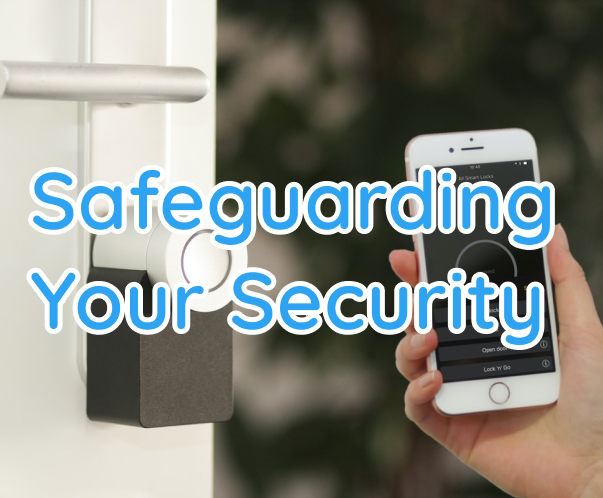The Importance of Regular Maintenance and Upgrades for Security Systems
Investing in a reliable security system is a crucial step towards protecting your home or business. However, the journey towards comprehensive security does not end with installation. To ensure the continued effectiveness and reliability of your security system, regular maintenance and upgrades are essential. In this article, we will explore the significance of regular maintenance, discuss the types of maintenance and upgrades that may be required, provide practical recommendations, and highlight the long-term benefits of a well-maintained security system.
- The Importance of Regular Maintenance: 1.1. Maximizing System Performance: Regular maintenance helps ensure that your security system functions optimally, minimizing the risk of malfunctions or technical issues. It involves inspecting and testing all system components, including cameras, sensors, control panels, and alarm systems, to identify any signs of wear, damage, or malfunction.
1.2. Enhancing System Reliability: By addressing potential issues proactively, regular maintenance reduces the chances of system failures or false alarms. This helps maintain the trust and confidence in your security system, ensuring it is ready to respond effectively in case of a security breach.
1.3. Prolonging System Lifespan: A well-maintained security system is likely to have a longer lifespan. Regular maintenance, such as cleaning, dusting, and ensuring proper ventilation, prevents the accumulation of debris and extends the longevity of the equipment. It also allows for timely detection and replacement of aging components, mitigating the risk of system failures.
- Types of Maintenance and Upgrades: 2.1. Preventive Maintenance: Regular preventive maintenance involves scheduled inspections, cleaning, and testing to identify and address potential issues before they escalate. This includes checking for loose connections, updating firmware and software, replacing batteries, and ensuring the functionality of backup power supplies.
2.2. Firmware and Software Updates: Security systems often rely on software and firmware to operate efficiently and securely. Regular updates provided by the manufacturer help address vulnerabilities, improve system performance, and ensure compatibility with evolving technologies and communication protocols.
2.3. Camera and Sensor Calibration: To maintain accurate detection and recording capabilities, cameras and sensors require periodic calibration. This involves adjusting settings, such as motion sensitivity, image quality, and field of view, to align with the specific needs of your environment and ensure reliable monitoring.
2.4. System Integration and Expansion: As your security needs evolve, regular upgrades allow for system integration and expansion. This may involve adding new cameras, integrating with access control systems, or incorporating advanced features such as facial recognition or remote monitoring capabilities.
- Recommendations for Effective Maintenance and Upgrades: 3.1. Establish a Maintenance Schedule: Create a maintenance schedule based on the manufacturer’s recommendations and the specific requirements of your security system. Regularly review and update the schedule as needed, ensuring that all components are inspected and tested according to the appropriate intervals.
3.2. Partner with Professionals: Consider engaging a professional security system provider or technician for routine maintenance and upgrades. They possess the expertise and experience to identify potential issues, perform thorough inspections, and recommend appropriate solutions, ensuring your system remains in optimal condition.
3.3. Train Personnel: Educate users and personnel on basic maintenance practices, such as proper cleaning techniques and battery replacement. Empower them to recognize and report any anomalies or malfunctions promptly.
3.4. Stay Informed: Keep abreast of industry developments, including firmware updates, software patches, and emerging security threats. Subscribe to manufacturer newsletters, follow security system blogs, and attend training sessions to stay informed about new features and best practices.
- The Long-Term Benefits: 4.1. Enhanced Security: Regular maintenance and upgrades provide peace of mind, knowing that your security system is functioning at its best, thereby maximizing the safety and protection of your premises.
4.2. Cost Savings: Proactive maintenance helps identify and address minor issues before they escalate into major problems, potentially saving you from costly repairs or complete system replacements. Furthermore, upgrading specific components or features can help future-proof your security system, eliminating the need for frequent overhauls.
4.3. Adaptability to Changing Threats: Regular maintenance and upgrades allow your security system to evolve and adapt to emerging security challenges. By staying up to date with the latest technologies, your system can better withstand potential vulnerabilities and address evolving risks.
In conclusion a security system is only as effective as its maintenance and upgrades allow it to be. By prioritizing regular maintenance, staying vigilant with firmware and software updates, and investing in necessary upgrades, you can ensure that your security system remains robust, reliable, and capable of protecting what matters most. Embrace the importance of regular maintenance and upgrades to safeguard your security today and in the years to come.


Recent Comments